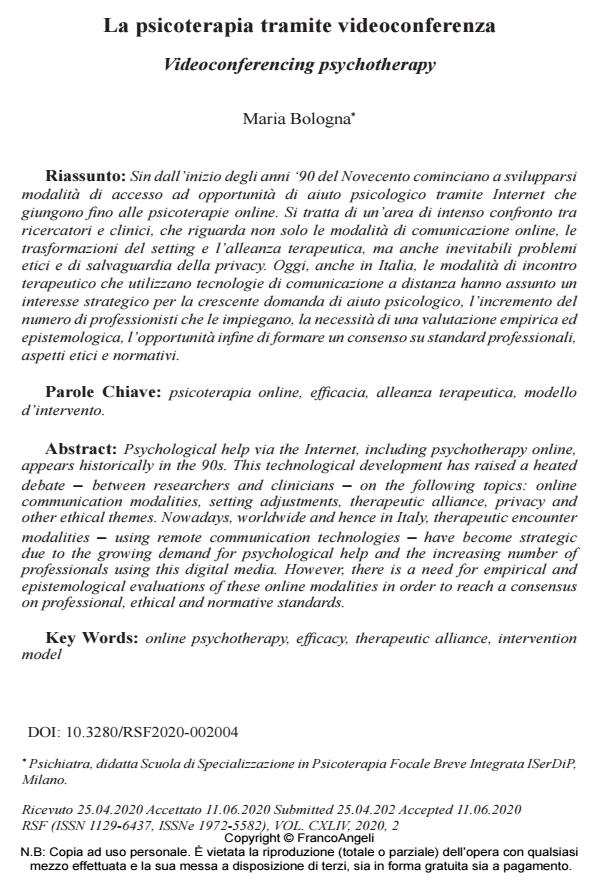Videoconferencing psychotherapy
Journal title RIVISTA SPERIMENTALE DI FRENIATRIA
Author/s Maria Bologna
Publishing Year 2020 Issue 2020/2
Language Italian Pages 24 P. 45-68 File size 241 KB
DOI 10.3280/RSF2020-002004
DOI is like a bar code for intellectual property: to have more infomation
click here
Below, you can see the article first page
If you want to buy this article in PDF format, you can do it, following the instructions to buy download credits

FrancoAngeli is member of Publishers International Linking Association, Inc (PILA), a not-for-profit association which run the CrossRef service enabling links to and from online scholarly content.
Psychological help via the Internet, including psychotherapy online, appears historically in the 90s. This technological development has raised a heated debate - between researchers and clinicians - on the following topics: online communication modalities, setting adjustments, therapeutic alliance, privacy and other ethical themes. Nowadays, worldwide and hence in Italy, therapeutic encounter modalities - using remote communication technologies - have become strategic due to the growing demand for psychological help and the increasing number of professionals using this digital media. However, there is a need for empirical and epistemological evaluations of these online modalities in order to reach a consensus on professional, ethical and normative standards.
Keywords: Online psychotherapy, efficacy, therapeutic alliance, intervention model
- Intervento di psicoterapia focale integrata in un caso di disturbo alimentare post-traumatico Silvia Cavedoni, in RIVISTA SPERIMENTALE DI FRENIATRIA 1/2023 pp.159
DOI: 10.3280/RSF2023-001011
Maria Bologna, La psicoterapia tramite videoconferenza in "RIVISTA SPERIMENTALE DI FRENIATRIA" 2/2020, pp 45-68, DOI: 10.3280/RSF2020-002004